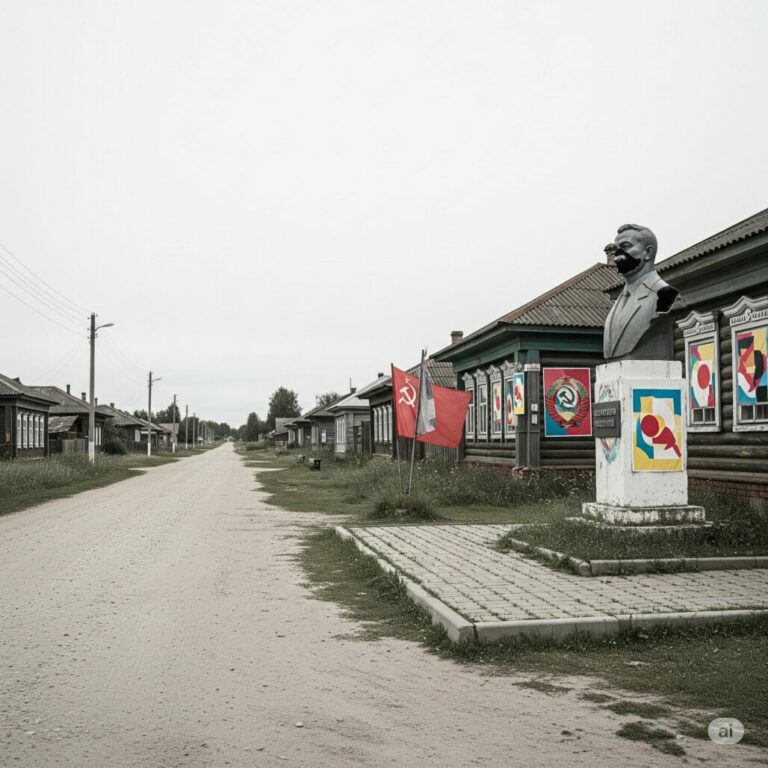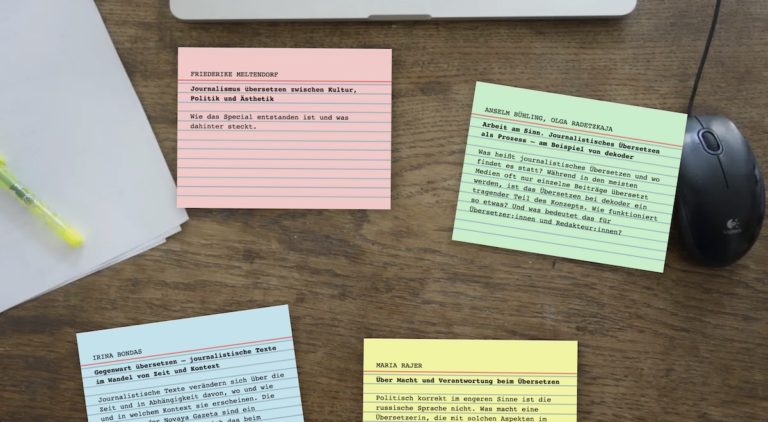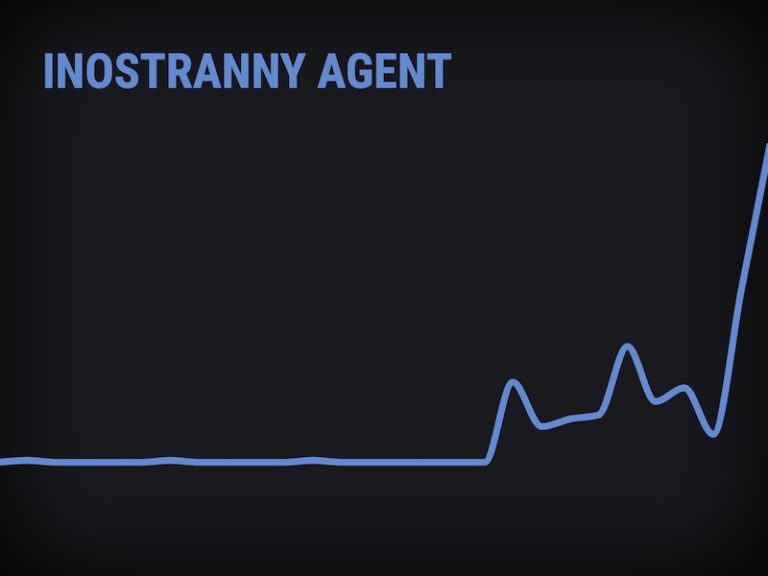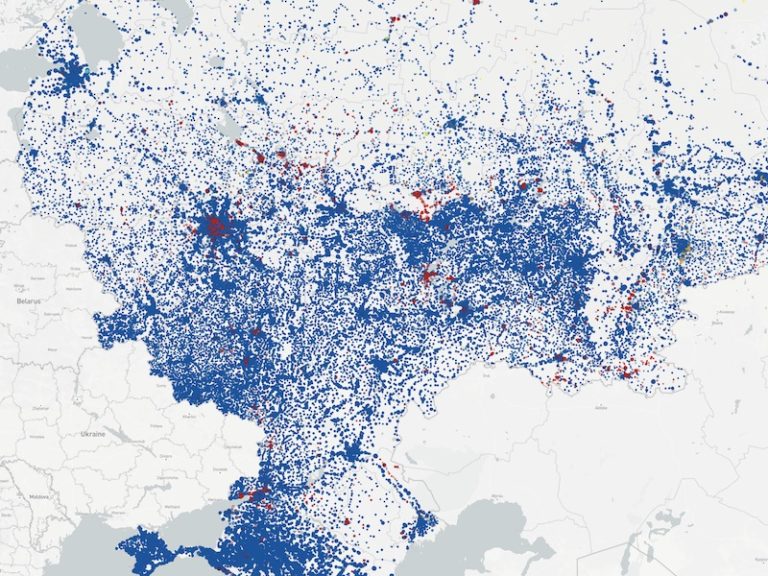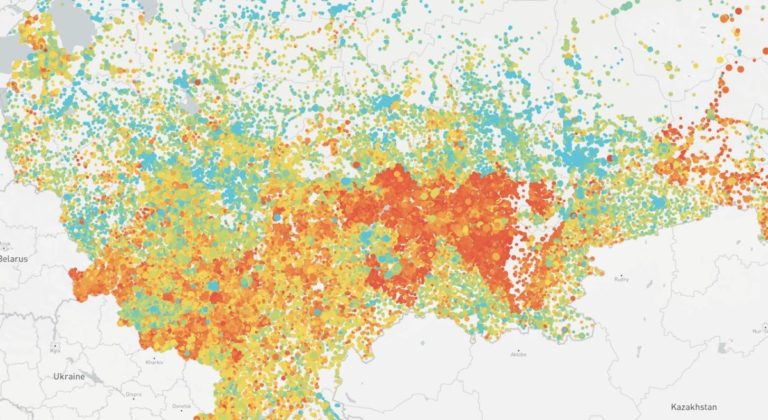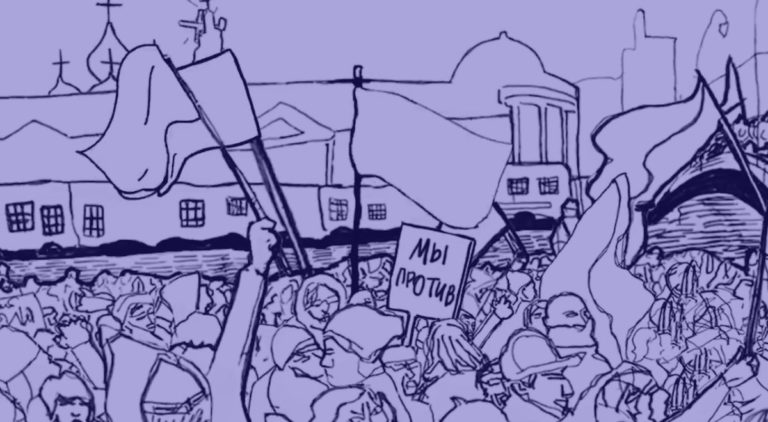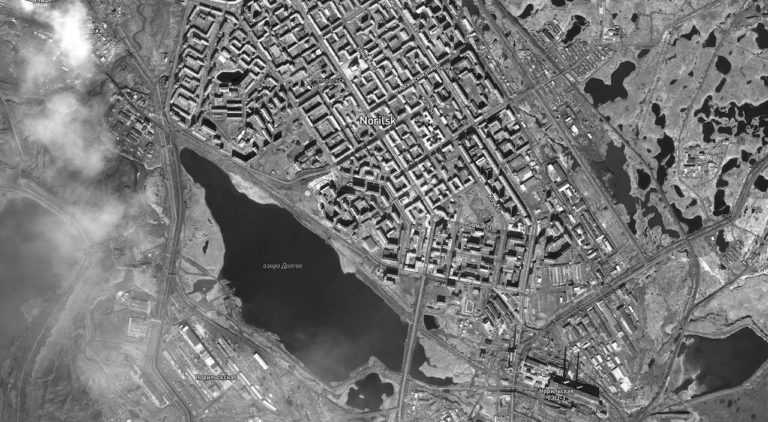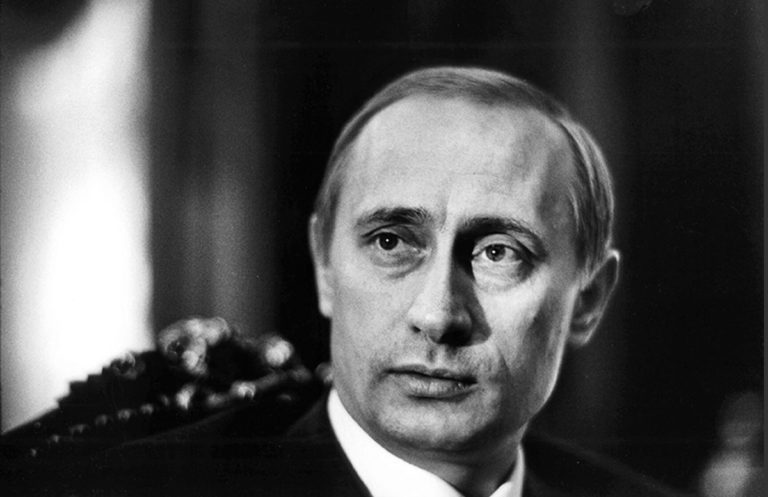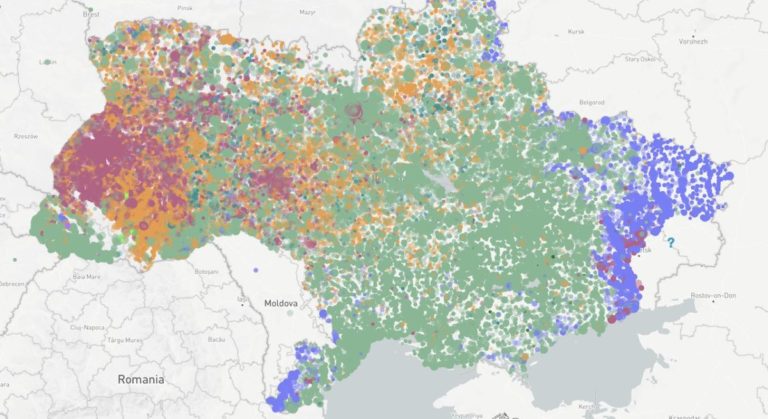If a translator looks over his own shoulder as he translates, what does he see? What does he ask himself? And with whom does he argue? Hartmut Schröder adopted a venerable cultural technique while working on a translation: journal-keeping. And then he let us have it.
Thursday, midday
Friederike from dekoder got in touch, wanting to know if I could translate a text by Monday. I had to think about it. There’s still a translation for another client on my desk, but it only needs some polishing. It should be ok: I tell her I can do it.
Thursday, evening
Ready to start. The previous translation is polished and off to the client. I look at the text that Friederike sent. Valery Karbalevich, that means Belarus. The Militarisation of the State. Belarus and militarization – no surprises there. I am reminded of Hulak and Labkovich, I interpreted for them in Berlin and elsewhere several times…but better not to think about them too much now, I’d just get upset and distracted.
Karbalevich’s text hits the ground running: “As state policy is primarily occupied with political repression these days, there has naturally been a corresponding increase in the relative importance of the security authorities, the siloviki” . At first, this strikes me as unusually abrupt for an opening sentence, but in view of everything that’s been going on in Belarus, one could quite reasonably call it moderate.
Ah, and here it is, the first stumbling block: silovyie struktury. I check, dekoder is bound to have a background text on the siloviki already – yes, it does. But what to do with “structures”? Siloviki is a personifying term, but it has come to refer to entire phenomena, silovyie vedomstva are institutions, the silovoy blok is a political grouping. The combination with “structures” is a bit tricky, it always sounds kind of vague and hinting of conspiracy. What are bisnes-struktury, for example? Business circles? I decide to put in both “security authorities” and “siloviki”, though security and repression kind of clash here…
And then, in the next sentence: the dreaded Russian hyphen! Voyenno-politseyskiy rezhim. I’ll have to unpack it, make it a police state and military regime (police regime would sound strange). “There is an evolution of state institutions towards greater militarisation, a military regime and police state.” That should do the trick.
The next paragraph ends with a nice, sarcastically baroque conclusion: “net neobkhodimosti obremeniatsia skrupuleznym vypolneniem iuridicheskikh protsedur”. I decide on a relatively literal translation, hopefully the convenience for the siloviki will come across: “Tempo and decisiveness in repressive measures is demanded of the justice ministry, there is, thus, no need to burden oneself with scrupulous adherence to legal procedures. ”
Next stop: this ubiquitous otmetim (“we note”): sometimes it emphasises something, sometimes it can just be left out. It’s superfluous here: “Recently it has been primarily the interior ministry that has initiated legislative amendments.”
Friday, evening
Snafu with the boys’ match tomorrow in Tegel. Jakob can’t come, his father won’t be able to pick him up afterwards. I tell the father I can get Jakob home. That embarrasses him, and after multiple rounds of negotiations, he arranges for Jakob’s aunt to do it. Well, at least, everything’s settled now…
But back to work.
It starts with this: “In a normal country, the right of legislative initiative lies primarily with the parliament.” Hmm, I may miss a broadcast of the nightly news now and again, but I still feel pretty sure that the German cabinet puts forth a legislative initiative from time to time… I leave it like that though: that is what Karbalevich wrote, plus, it is probably a result, quite simply, of his experience to the contrary in his country.
The next subheading is eye-catching: Kovid-dissidentstvo . What’s up with that? Dissidence? Belarusian Querdenker? I’m trying to stick really close to the original here. Covid-dissidence. And “dissident” may be serving as a back-door allusion to the fact that “Luka” himself is quite zealous in his non-toleration of dissidents, or even of mere dissent…
Then the text starts talking about the pafos of Lukashenko’s speech at the October 18 meeting. “Pathos” wouldn’t make sense at all in this sentence, it’s a false friend here! Tone? Character? Main emphasis? I decide to use that. There follows an ominous sounding statement by Lukashenko on vaccinating against Covid 19: “… but you shouldn’t place too great a strain on people either.” That would fit in with his logic, it should be about right, but I’m really not that sure. The syntax is just so weird. It might just be Lukashenko’s garbled, rough and tumble, rustic style. Nice to know the editorial board has got my back, for researching online, I find a video of the session – grotesque and depressing: The psychotic puppet master instructing his marionettes, exuding cynicism and also, somehow, the helplessness of someone doesn’t know what to do. One of the public health marionettes is in uniform, reminding me of once in 1990 at the Minsk airport, when I saw the deputy head of the pharmaceuticals section of the health ministry of the Belarusian SSR (if it was still an SSR), in full regalia, attempting to confiscate, on behalf of his ministry (or possibly for himself), a load of baby food from the West meant for some NGOs…
Getting back to the text. “The most important argument addressed to the senior officials: “Whose hands will you be playing into?” The chinovniki again…every time, I have to decide whether they are “officials” or “bureaucrats”. Because there are no officials (Beamte) in the German understanding of that term in Russia or Belarus, and chinoviki is pejorative in a different way. “High ranking representatives of the bureaucracy” would be too stilted, better take “senior officials” instead. “And the most important argument addressed to the senior officials: And whose hands will you be playing into?”
Saturday, afternoon
Today’s matches are over. The boys were on the receiving end of an 8:1 drubbing in Tegel. Entirely avoidable, almost all of the eight were counterattacks right down the centre. Ian has managed to shrug it off though…
Back to work. More on Lukashenko: Narodnyi vozhd ne mozhet oshibatsia. Vozhd: Führer? Germans of certain generations, myself included, wince on hearing that word applied to the leader of another country. But in Russian, when you hear the word “vozhd” (and it is “вождь” and not “лидер”, lider), Comrade Stalin is bound to be lurking somewhere nearby. He was called vozhd narodov, “leader of the peoples”. It is not all that enormous a leap from him to “our” Führer… True, Luka has only the one people, but he’s earned a label like “Führer” – and not just subjectively. It stays.
And then the structural problems begin: Provedenie sovmestnoi kollegii ministerstv oborony. No idea what these types of ad-hoc bodies are called in German. There isn’t time to surf through the labyrinth of the websites of the relevant agencies: “The meeting of a joint collegium of the ministries of defence of Belarus and Russia on October 20 was accompanied by great proclamations.”
The text then starts talking about the Russian military bases in Belarus. “At issue are the radar site of the missile early warning system near Baranavichi and the Russian Navy’s communications centre in Vileyka.” As far as I can tell, anyway – the military isn’t really my thing. I could only find loose descriptions in German, and if I spend too much time researching, the translation won’t get done by Monday morning…
Sunday, evening
OK, the text has had a chance to “rest” now, I’ll read it through one last time and send it off. dekoder wants it on their desk at 9 am tomorrow.
Trialogue
A few days later…
The edited version of the text has come back from dekoder. It wouldn’t have, normally, there just isn’t time for this step, but this diary project makes it necessary and possible. I’m very curious!
There’s a change in the very first sentence. State policy is no longer “occupied with” repression, it “consists of” it. “As state policy now consists primarily of political repression, there has naturally been a corresponding increase in the relative importance of the security authorities, the siloviki.” OK. That’s logical. No sense pulling a punch if you are going straight for the throat. I see from the comments that the editors discussed my use of both security authorities and siloviki but decided to keep them both.
What’s next? The sarcastic baroque: “there is, thus, no need to burden oneself with a scrupulous adherence to legal procedures.” The baroque is gone, they’ve shortened it; well, it is a journalistic text. Now it says: “there is, thus, no need for a scrupulous legal procedure.” Pity, actually. The “burden oneself with” would have brought out more clearly the siloviki’s unwillingness, on principal, to abide by the rule of law by following procedures. It’s not like this kind of journalistic text couldn’t tolerate the occasional little detour into verbosity.
The editors have reworded part of the passage about legislative initiative. I had written: “Recently it has been primarily the interior ministry that has initiated legislative amendments. When the ministry wants subscribers to the “extremist” Telegram channels to be declared members of extremist organisations, for instance”. Now it says: “Recently the role of initiating legislative amendments has been taken on primarily by the interior ministry. When the ministry wants…” So now “interior ministry” comes at the end of the sentence, I guess that is to smooth the transition to the next sentence. Readability.
Then comes the Covid-dissidence. They’ve changed it: “Dissidententum in Sachen Corona” … My mistake, using Covid rather than Corona. My usage has quite simply been contaminated by English and Russian texts. “Dissidententum in Sachen Corona” doesn’t exactly trip off the tongue though. “In Sachen Corona” [≈regarding Corona]: bit strange. And is “dissidence” really too much of a stretch for the reader? Dissidence evokes the attitude, reflected in action, while Dissidententum [dissident-ism/-dom or dissident behaviour] is likely to be associated specifically with the Soviet dissidents, isn’t it? I don’t know, maybe they were up against a deadline too.
Then the riddle of what Lukashenko’s is saying about vaccination. The editors changed it to “but do not put any pressure on people” and added a “bitteschön” [here, an intensifying interjection, in other contexts meaning something like “no need to thank me”]. “Pressure” is better than “too great a strain” (must remember that one!), but it doesn’t really make things much clearer; oh well, I guess the Nation’s Leader is the one to blame for that. Still, would a Führer say “bitteschön”?
“The meeting of a joint collegium of the defence ministries of Belarus and Russia on October 20 was accompanied by great proclamations.” They’ve changed this sentence a lot. “Lofty declarations were made within the framework of the meeting of representatives of the defence ministries of Belarus and Russia on October 20”. I look into it: the “collegium” is (among other things) just a gathering of certain officials, not actually a body. So “representatives” is totally fine – I shouldn’t have taken it at face value.
The “great proclamations” have been replaced by “lofty declarations”. “Lofty” might be overdoing it a bit. On the other hand, “great” was actually pretty bland, although I’d hoped to compensate for that with “proclamations”… Kind of wondering about how “soprovozhdalo” (accompanied by) became “im Rahmen” (within the framework); unless…maybe they mean the larger context of the event?
They didn’t change the military details. Otherwise just minor or moderate corrections. I guess I will never manage to deliver a perfect text that doesn’t need a single correction. That would probably be boring though and no fun at all…
Postscript following the start of the war
February 24
The inconceivable has happened.
Putin has gone to war.
What a crime. What a catastrophe. I prowl around the flat, trying to get my thoughts into some sort of rational order. Rationality is having a very hard day…
Afternoon
I’m on my way to the demonstration. Elisabeth, an old friend, calls. She’s seen the articles I translated in Russland-Analysen and wants to chat, as we often do. Elisabeth has spent decades promoting understanding between East and West – and, first and foremost, trying to understand. She is old now and ravaged by long illness. We natter away as usual, mostly small stuff, but after a while, with a kind of horror, it dawns on me: She doesn’t know what’s happened yet.
I try to tell her what’s going on. She needs to go read the news, watch it. And I set off again to the demonstration…
Early March
I’m still prowling around the flat, my home office. No jobs are coming in; dekoder is in a state of emergency, others don’t seem able to get in gear at all. I have to do something, so I head to the central station.
What a contrast. Volunteers have set up a whole station. In the underground. One could think of it as a half-way decent terminus for the Kyiv and Kharkiv subway lines.
After the mandatory briefing, it’s time for my first assignment: a train from Warsaw. People come pouring out, and I, still deciding between “hello” and the more formal “good day”, am issued a two-word decree by a Ukrainian matriarch: “To Mannheim”. Got it. Four people, six suitcases, shoulder bags, plastic shopping bags. We troop off to the ticket counter; soon everything’s arranged. On to the next group, it doesn’t take long to find them either…
Definitely therapeutic! I can do something. For a brief moment, anyway, I can lighten someone’s load; sometimes they get a bit teary-eyed, and then I do as well. Once, though – just the once – someone broke down right before my very eyes, just fell apart, completely disoriented, weeping tears of despair. That was hard.
Early April
I get word that Elisabeth has died. Her health had been failing for a while, it’s true. But the war, Putin, did the rest…
May
I run into a friend of my son’s from his preschool days; he was born in Berlin, but his parents are Russian. Knowing them, I suspect the war is a touchy subject in their home, so I’m very careful when broaching the topic. And I get annoyed at myself: it’s an opportunity to mediate, to foster understanding, but I don’t want to be too intrusive. A treacherous barrier…
I have friends – people whose convictions led them to do civilian instead of military service, people who are anything but hawkish – who now actively support the supply of arms to Ukraine. And my position? Still that of a translator, in the role of mediator?
I ask myself if there will come a time when Russian-German translation services will only be needed to enable absurd diplomatic exchanges (I don’t want to know how Scholz’s and Macron’s interpreters must have felt in Moscow), in refugee aid contexts, for appointments at government offices or by a media project like dekoder.
Maybe I should learn Ukrainian to lend new purpose to my old age…
Even before the war, I was starting to wonder if it was wise to focus so strongly on presenting the critical part of the discourse in Russia rather than also showing the mainstream (let alone the seriously unsavoury stuff dished out by the state television broadcaster). I did translate parts of Putin’s 2014 Crimea speech for dekoder. That was intense, quite a different experience from translating commentaries from the various experts, who, though insightful, did all seem to be singing from the same, possibly fringe, songbook.
Maybe it would make sense to translate material from the “poisons’ cabinet” too; with commentary, of course; detailed background and analysis is dekoder’s thing. Like the documentation of “What Russian Should Do with Ukraine”, the high-profile RIA piece by Sergeytsev, that the Blätter für deutsche und internationale Politik (Journal for German and International Politics) published, excerpts of which were also published by dekoder. Provide insight into the abysses too.
* * *
I am poking in the mounds of my powerlessness and my despair. In a defiant search for grounds for optimism.
I think I need to go back to the train station…


